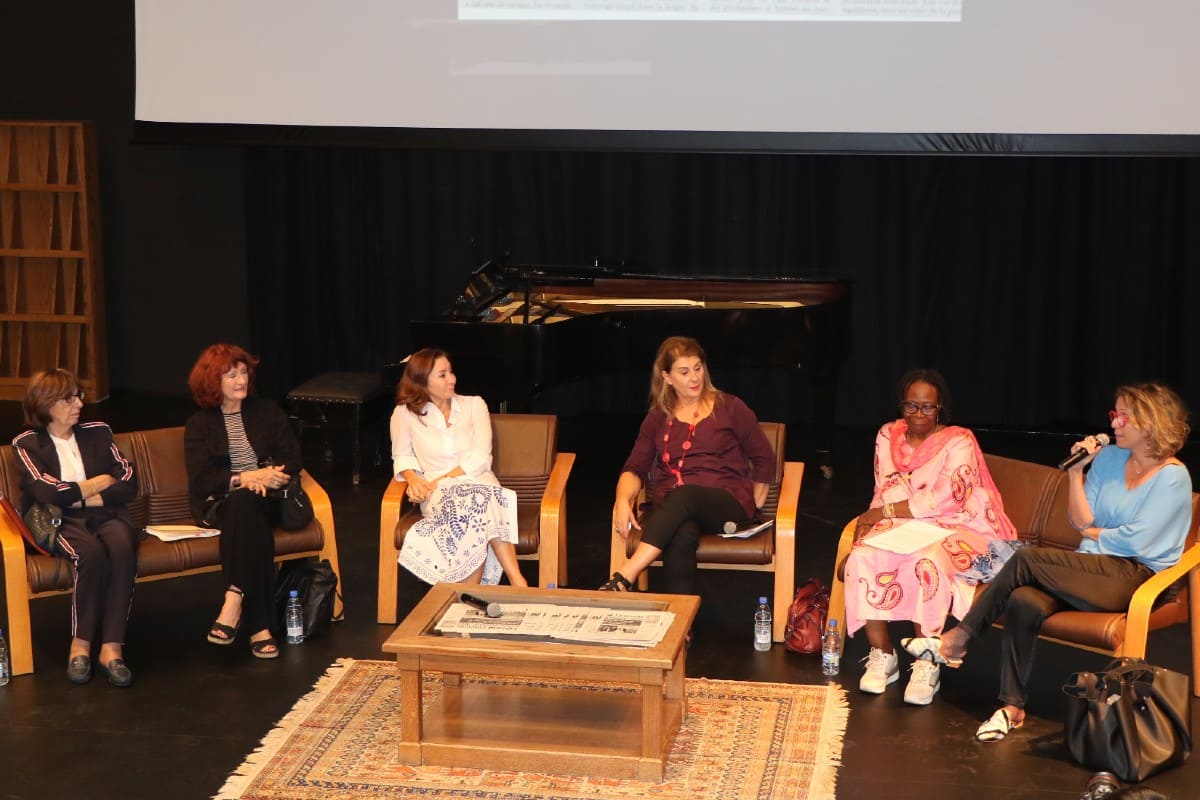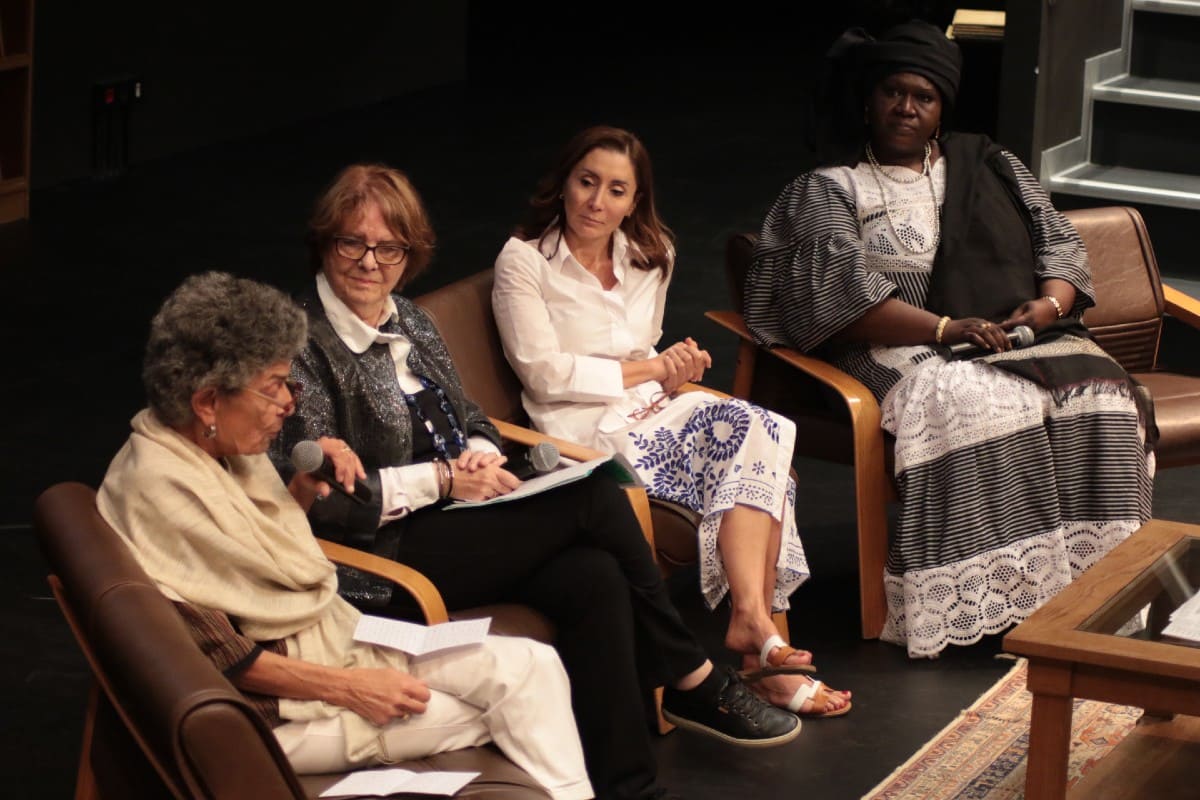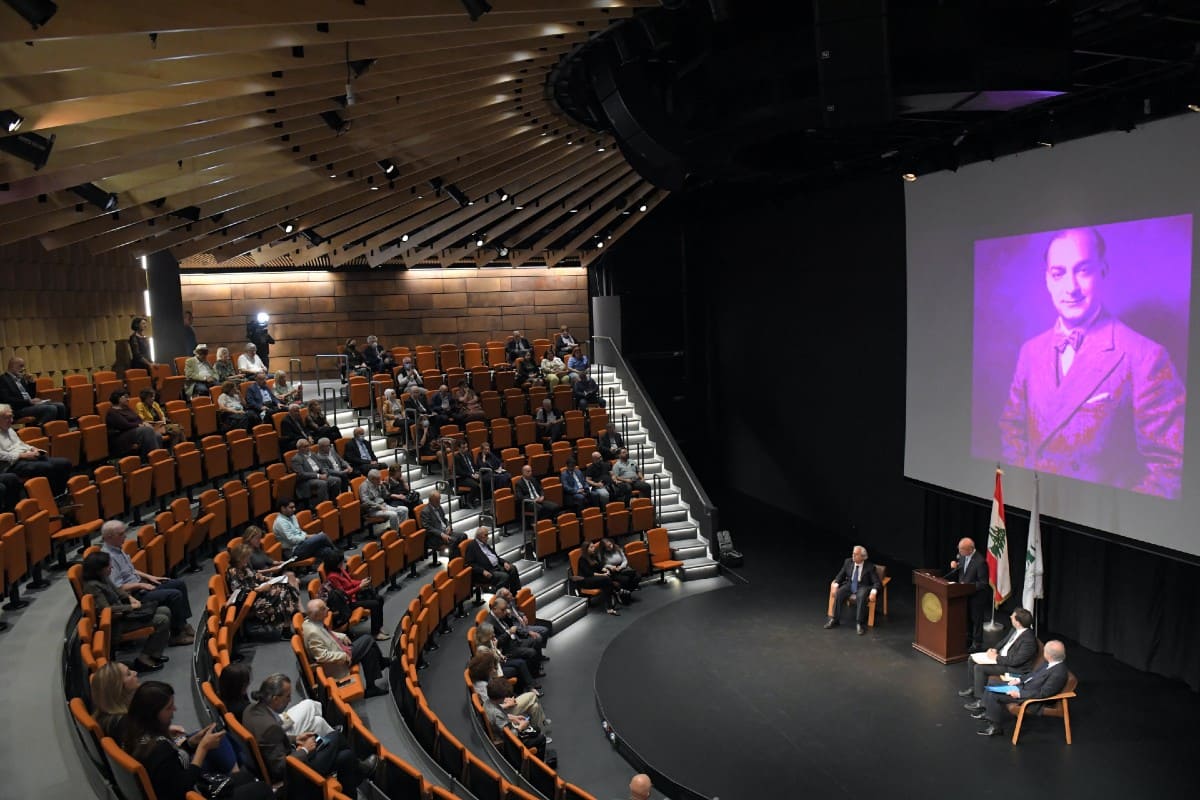LAU Hosts a Series of Cultural Events as Part of Beyrouth Livres
Francophone authors, poets and musicians present enriching ideas and broaden students’ horizons.
The School of Arts and Sciences has hosted a series of events at LAU Beirut campus as part of the Festival International et Francophone du Livre de Beyrouth, Beyrouth Livres, in collaboration with the Institut français du Liban.
On October 27, authors, performers, artists, activists and poets engaged the audience in immersive musical performances and panel discussions in Gulbenkian Theater.
“As we slowly return to a semblance of normalcy in our daily lives,” said Dean Cathia Jenainati, “the School of Arts and Sciences is committed to reviving LAU’s tradition of championing the arts in all their manifestations.”
“Today, we are collaborating with the Institut français du Liban in the hope that this event will usher in a new era of anglophone-francophone cooperation that will see the establishment of several long-term cultural and artistic initiatives.”
Dr. Jenainati welcomed attendees and gave an overview of the day’s cultural events. She presented LAU’s Composer in Residence Joseph F. Khalife, the school’s Artist in Residence Reem Deeb and Music Director Michele El Chemaly who took part in three musical performances at the opening event which premiered the original composition, Paix Pour Beirut, written and set to music by Khalife especially for the occasion and interpreted by Dr. Deeb in three languages.
Two panel discussions spotlighted members of the Parlement des Ecrivaines Francophones: Carmen Boustani, Marie-Rose Abomo-Maurin, Madeleine Monette, Hyam Yared, Catherine Pont-Humbert, Lise Gauvin, Sophie Bessis and Fatoumata Ki-Zerbo.
In the first discussion, titled L’écriture du corps, the feminist authors spoke about the representation of women’s bodies in literature and the language nuances used when describing them. They read original writings from their latest poetic and narrative publications and engaged in a lively debate that involved members of the audience.
In the second debate, Où en est le combat pour le droit des femmes? panelists delved into how advances in the fight for women’s rights vary depending on geopolitical factors. Here too, an animated discussion involved members of the audience, some of whom were international authors participating in various literary events across the city of Beirut.
Both debates were moderated by art historian, curator and writer Joëlle Hajjar.
The school also launched a permanent art exhibition at Sheikh Zayed Hall, as part of the day’s cultural events. Its opening show, titled Palpitations, was themed around the body, and featured paintings by artists Zeina Nader and Wissam Melhem. It included a digital exhibit of music and other paintings by Nader.
With LAU President Michel E. Mawad’s staunch support of the arts and culture, said Dr. Jenainati, “we are glad to be hosting Lebanese artists in our permanent art exhibition that is open to the general public and will celebrate well-known painters, sculptors and visual artists as well promote the work of emerging Lebanese artists.”
An evening seminar, organized by Director of LAU’s Center for Lebanese Heritage Henri Zoghaib, honored the late Lebanese writer, businessman and philanthropist Charles Corm.
Hommage au poète libanais Charles Corm (1894-1963) kicked off with an address by Dr. Mawad. Taking part in Beyrouth Livres, he said, reflects the university’s and the center’s openness to broad cultural horizons “offering students a rich and diverse heritage that will guide them to a fruitful future in their society and prepare them to contribute to their country.”
Paying tribute to Corm, Zoghaib began with a passage from a speech he had delivered at the Conference on Humanity in Monaco in 1935, in which he had stated that “the Lebanese, since time immemorial, have created an open liberal civilization, preserved, defended and established with universal tendencies taken from them and adopted by many peoples.”
That was the poet’s message, said Zoghaib, to highlight the genius of his country and its cultural influence on other countries and people.
In his talk, lawyer, journalist and writer Alexandre Najjar portrayed Corm as the pioneer of Francophonie in Lebanon, which, he said, was not a legacy of the Mandate as French was widely used in the country well before that.
Another side to Corm – that of a leader of a movement that stoked nationalism sparking the country’s fight for independence – was presented by academic and literary critic Georges Dorlian, who explored his quest for a national identity.
The event was preceded by an exhibition of manuscripts, photos and books documenting Corm’s multifaceted career.


